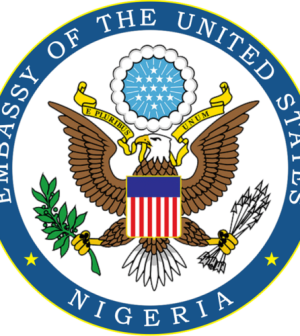A recent report by the Council on Foreign Relations has revealed how United States Embassy Officials in Nigeria aid corruption in the country.
The report revealed that in spite of the United State’s government efforts to combat corruption in Nigeria, US embassy officials in the country have neglected that for personal gains.
The report authored by Matthew T. Page, entitled ‘Improving U.S. Anti-corruption Policy in Nigeria’ stated that the US anti-corruption policy continues to be ineffective in Nigeria for four reasons.
The reasons, according to the report are: “First, the interests of senior US policy makers and working-level officials diverge. President Barack Obama, Secretary of State John Kerry, Attorney General Loretta Lynch, and Treasury Secretary Jacob Lew have defined anti-corruption efforts as a U.S. policy priority in Nigeria; they see it as part of a global effort to combat illicit finance, poor governance, and violent extremism.
“Yet officials serving at the U.S. Embassy in Abuja — diplomats, military liaisons, and intelligence officers — are mainly concerned with cultivating strong relationships with a wide range of elites, including those complicit in corruption.
“As a result, U.S. anti-corruption policy remains broad-based and untargeted, centred on modest assistance programmes for police investigators and civil society watchdogs.
“Second, U.S. officials are not using existing tools — such as consular databases, local law enforcement records, or online searches to conduct basic due diligence — to identify and avoid enabling corrupt officials.
“As one example, the U.S. Agency for International Development (USAID) funds a rice cultivation project owned by a former attorney general whom the United States sanctioned for corruption in 2010. In April 2016, the U.S. ambassador and USAID officials visited and toured the farm with the owner.
“Third, the anti-corruption work of U.S. law enforcement agencies is under-resourced given the size and scope of corruption in Nigeria, its destructive impact on U.S. policy interests, and its role in fuelling illegal financial transactions in the United States and Europe.
“Although the FBI’s International Corruption Unit recently tripled in size, its worldwide focus, heavy case loads, and long prosecution time lines mean that it can only investigate a handful of the many potential cases involving corrupt Nigerian elites.
“Fourth, as with other policy efforts, anti-corruption action is hindered by inter-agency divides. The U.S. Department of State, Department of Justice, Department of the Treasury, and the U.S. intelligence community rarely collaborate to combat corruption in Nigeria.
“For example, the state department and the intelligence community do not routinely provide tips, background information, or expert advice to justice department investigators working to locate and seize assets stolen by Nigerian kleptocrats. Further, frequent personnel turnover has hindered attempts by some working-level officials to improve communication and policy coordination.”

